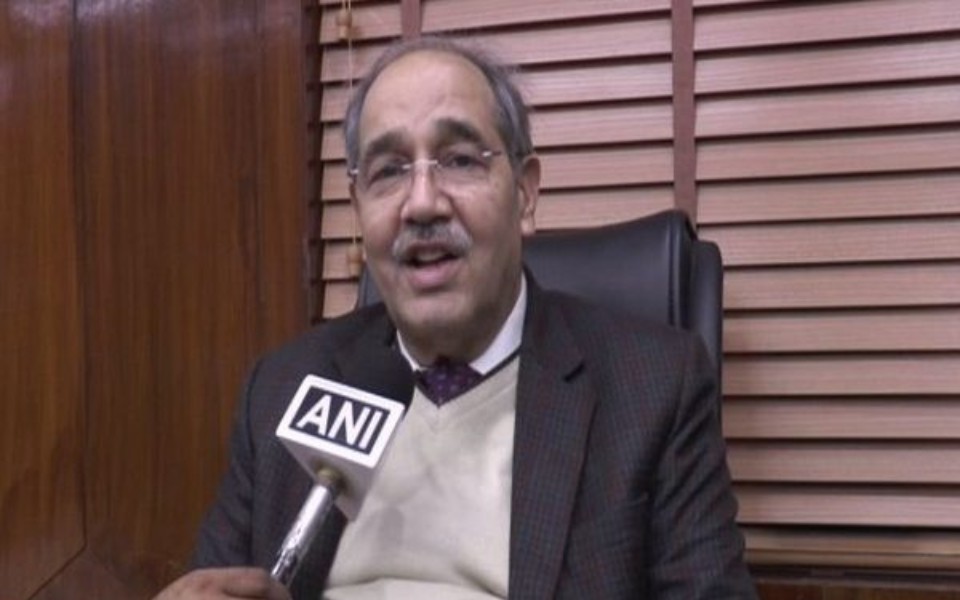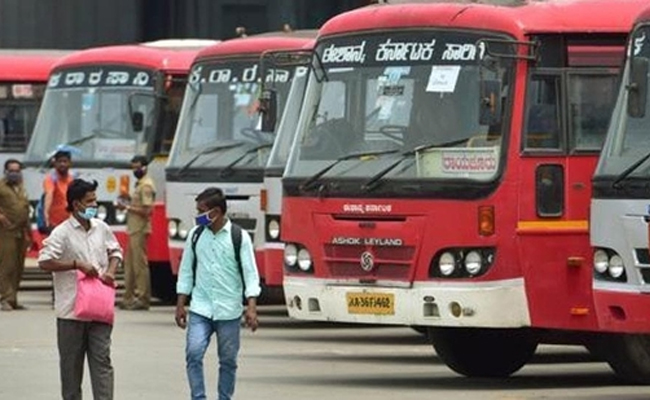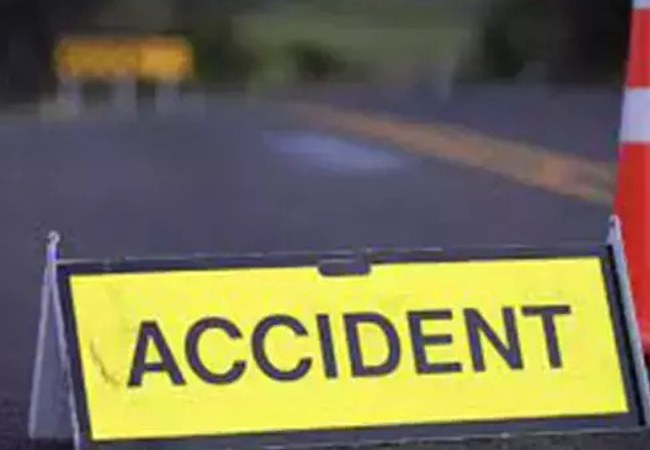New Delhi, Jul 29: BJP president J P Nadda rejigged the list of the party's central office-bearers on Saturday, bringing in a Pasmanda Muslim from Uttar Pradesh as one of its vice presidents and former Telangana unit chief Bandi Sanjay Kumar as a national general secretary.
The Bharatiya Janata Party (BJP) has dropped C T Ravi, a leader from Karnataka, Dilip Saikia, a Lok Sabha MP from Assam, as its general secretaries, and Vinod Sonkar, Harish Dwivedi, both Lok Sabha MPs from Uttar Pradesh, and Sunil Deodhar as secretaries.
Saroj Pandey, a Rajya Sabha MP from Chhattisgarh, has been made a vice president, while Dilip Ghosh, a Lok Sabha MP from West Bengal, has been dropped.
Lata Usendi, a tribal leader from Chhattisgarh, has also been elevated to the post of vice president, underscoring the party's focus on the poll-bound state where the Congress is in power.
Radha Mohan Agrawal, a Rajya Sabha MP from Uttar Pradesh, is one of the two new faces on the list which have nine general secretaries, seven of whom retain their position.
The new secretaries are Anil Antony, son of veteran Congress leader A K Antony, and Surendra Singh Nagar and Kamakhya Prasad Tasa, Rajya Sabha MP from UP and Assam respectively.
Nagar is an influential Gurjar leader from western UP while Tasa has long been the face of tea tribes in the northeastern state.
There are 13 vice presidents, nine general secretaries, including B L Santhosh as the in-charge of the organisation, and 13 secretaries on the list.
Former Union minister Radha Mohan Singh, a Lok Sabha MP from Bihar, has been dropped from the post of party vice president.
Former Uttar Pradesh BJP president and Rajya Sabha MP Laxmikant Bajpai is one of the two new vice presidents.
With Mansoor being inducted as a party vice president, there are two Muslims in the position now. Kerala leader Abdulla Kutty is another member from the minority community on the list.
The appointment of former Aligarh Muslim University (AMU) vice-chancellor Mansoor, now a BJP MLC in Uttar Pradesh, is being seen to be part of the party's overtures to Pasmanda (backward) Muslims.
Ravi's omission from the list of general secretaries, who spearhead the party's policies and agenda nationally and state-wise, unlike the vice presidents who are mostly figureheads, is being seen by some as a fallout of the BJP's big defeat in the recent assembly polls in Karnataka.
The four-term MLA had lost his seat in a close fight in the recently held assembly polls in Karnataka.
However, a party leader said not much should be read into the dropping of several office-bearers, as many of them, including Ravi, may contest the 2024 Lok Sabha polls and will be focussing on their likely constituencies.
The appointment of Bandi Sanjay weeks after his removal as the Telangana BJP president is a signal to the party cadres that he remains valuable to the national leadership, and that his ouster was a tactical call taken in the context of political realities in the southern state, sources said.
The party had recently appointed general secretary D Purandeswari as the president of its Andhra Pradesh unit.
There are no women now among the party's nine general secretaries, though there are five women vice presidents and four women secretaries in the list of new national office-bearers.
Former chief ministers Raman Singh, Vasundhara Raje, and Raghubar Das are among the seasoned leaders retained as vice presidents in the new list.
Arun Singh, Kailash Vijayvargiya, Dushyant Kumar Gautam, Tarun Chugh, Sunil Bansal, and Vinod Tawde also continue as general secretaries.
Nadda's tenure as BJP president was extended in January this year to allow him to be at the helm during the next Lok Sabha polls.
Let the Truth be known. If you read VB and like VB, please be a VB Supporter and Help us deliver the Truth to one and all.
New Delhi (PTI): The Supreme Court on Friday granted bail to filmmaker Vikram Bhatt's wife Shwetambari Bhatt in a multi-crore rupees cheating case.
The top court also sought responses of Rajasthan Police and complainant Ajay Murdia, founder of Indira IVF and Fertility Centre and a resident of Udaipur, by February 18 and said it may consider a day after the bail plea of filmmaker Vikram Bhatt.
Murdia alleged in his complaint that Bhatt and his wife induced him to invest over Rs 30 crore in a biopic of his late wife, promising high returns.
A bench comprising Chief Justice Surya Kant and Justice Joymalya Bagchi took note of the submissions of senior advocate Mukul Rohatgi, appearing for the Bhatts, and ordered forthwith release of Shwetambari Bhatt from Udaipur jail.
The bench asked the Chief Judicial Magistrate of Udaipur to pass the bail order delineating the terms and conditions for her release.
The top court also issued notices to complainant Ajay Murdia, the founder of Indira IVF and Fertility Centre and a resident of Udaipur, and the Rajasthan government for February 19.
Rohatgi said the director and his wife and others have been put behind bars.
"It is not so simple... Rs 30 crore fraud," the counsel for the state government said.
"But, you cannot use these cases to recover money," the bench said, adding that the complainant be also made a party to the petition.
"Unfortunately, they (petitioners) have not sought quashing of the FIR… How Rajasthan has been chosen? Very unfortunate," the bench said.
On January 31, the Rajasthan High Court rejected their bail applications in the cheating case.
The two have been in jail since December 7, 2025, when they were arrested in Mumbai and brought to Udaipur.
While rejecting their bail, the high court observed that granting bail to the accused at this stage would not be appropriate.
Vikram Bhatt was arrested after Murdia filed a complaint of cheating and criminal breach of trust against the filmmaker, his wife Shwetambari Bhatt and others, alleging that funds taken in the name of a film project were misappropriated.
The complaint has alleged that funds to the tune of Rs 30 crore were misappropriated. The complaint alleged that the Bhatts prepared fake bills under various names and got money transferred from the complainant.
The money was supposed to be for making films for the complainant, but was allegedly deposited into the accused's own accounts and used by them.
Apart from Vikram and his wife, Udaipur-based Dinesh Kataria and Bhatt's manager, Mehboob Ansari, were also arrested by Rajasthan Police on December 7, 2025.




